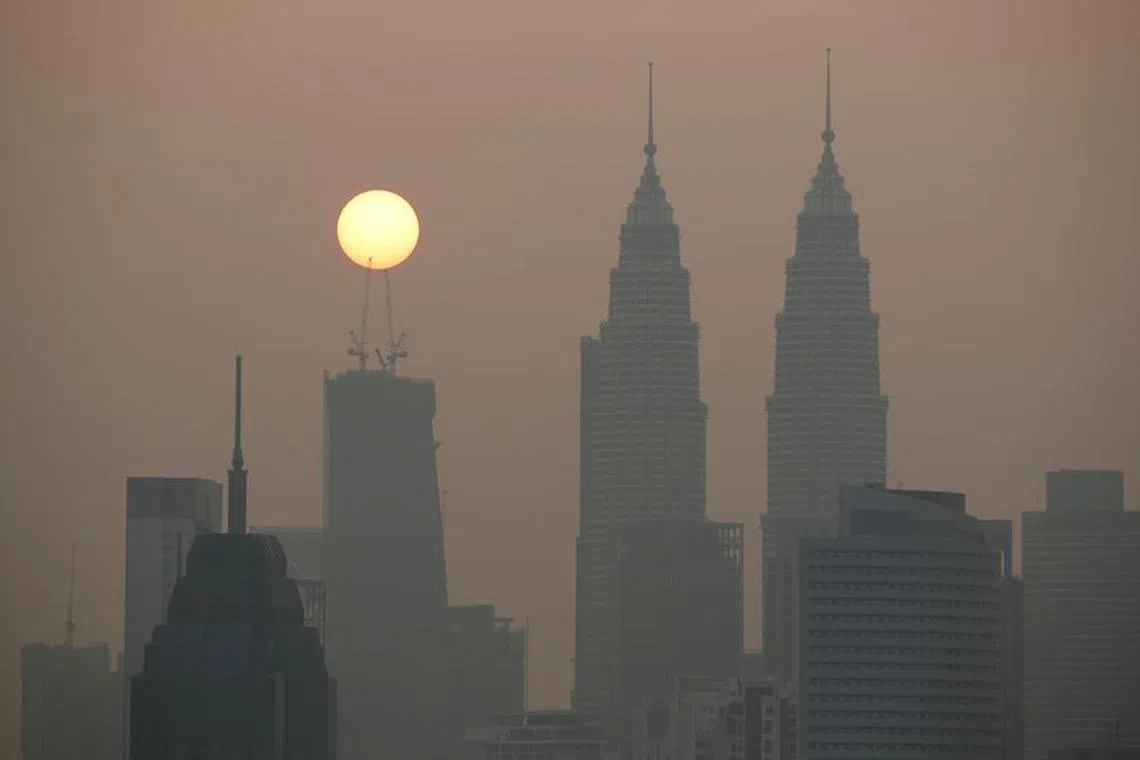Malaysia ramps up enforcement and surveillance in haze battle
Sign up now: Get insights on the biggest stories in Malaysia

Malaysia is working closely with neighbouring countries under the Asean Agreement on Transboundary Haze Pollution to prevent and mitigate forest and peat fires.
PHOTO: REUTERS
KUALA LUMPUR – Malaysia’s Department of Environment (DOE) has stepped up enforcement and surveillance at open burning hot spots to tackle the haze
As at July 30, a total of 4,247 patrols and 859 aerial surveillance missions using drones had been carried out.
The director-general said the DOE monitors the air pollution index hourly from its environmental data centre in Putrajaya via 68 surveillance stations nationwide.
“We need to give serious attention to the haze as it can impact the health of the people,” he said in a media engagement session here on July 31.
He added that 27 offenders had been charged in court, while 59 compound notices had been issued to other parties since January.
The DOE had also extinguished fires with the assistance of 13 agencies under a joint initiative.
Datuk Wan Abdul Latiff said Malaysia is also working closely with neighbouring countries under the Asean Agreement on Transboundary Haze Pollution to prevent and mitigate forest and peat fires.
“Through this platform, Malaysia has proposed initiatives for neighbouring countries to adopt, in order to eradicate open burning that may cause or worsen haze in the region,” he said.
On the issue of e-waste, he said the increasing use of electronic devices has led to a corresponding rise in e-waste.
Between January 2021 and June 2025, more than 536,709 tonnes of e-waste were recycled by DOE-approved companies.
Among the DOE’s e-waste management initiatives is the expansion of e-waste collection centres, currently numbering 128 nationwide.
Other efforts include increased enforcement against illegal e-waste recycling companies through the department’s Ops Hazard, as well as public awareness campaigns on safe disposal practices.
“If e-waste is not properly managed and is indiscriminately disposed of, it can pose serious risks to daily life, particularly due to its hazardous effects on health and the environment,” said Mr Wan Abdul Latiff.
The DOE also revealed that 88 per cent of illegal e-waste originated from the United States. Canada, Singapore and the United Kingdom accounted for 2 per cent each. Since 2015, up to 660 shipments of e-waste have been ordered to be returned to their countries of origin.
Separately, Mr Wan Abdul Latiff said a shortage of manpower continues to pose a major challenge to the enforcement of environmental laws.
He said that while the ideal workforce strength is at least 4,100 staff, the DOE is currently operating at only about 25 per cent capacity, with 1,113 personnel. THE STAR/ ASIA NEWS NETWORK


